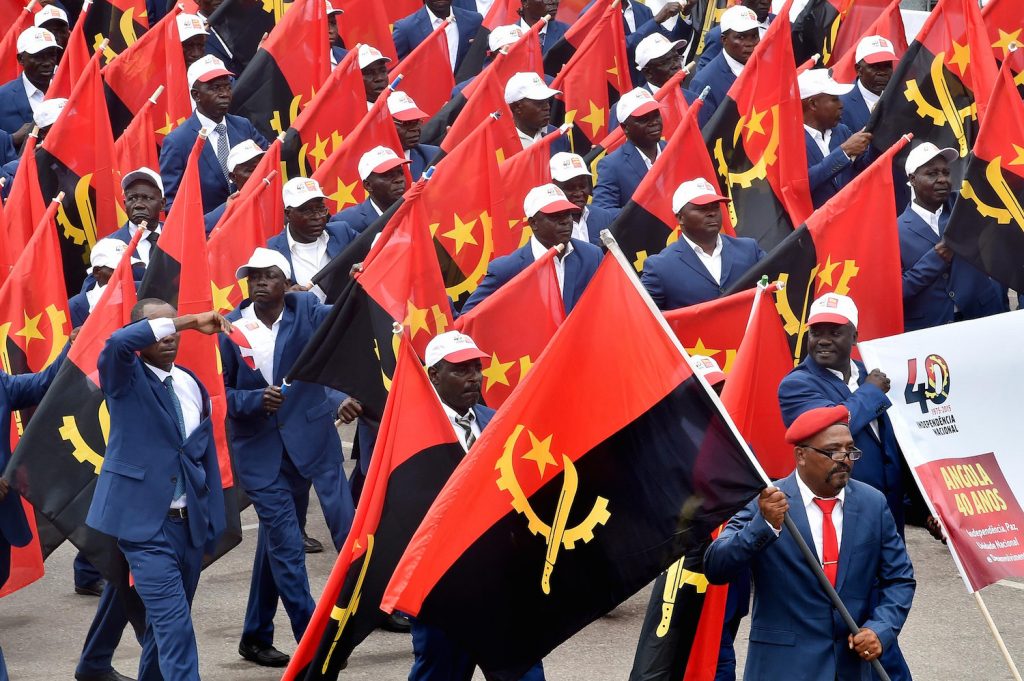Angola at a Crossroads
The announcement of Angolan longtime president José Eduardo dos Santos not to stand for reelection has shaken up the country’s political scene. Sylvia Croese looks at Angola ahead of the 2017 legislative elections and at the “president in waiting”.
General elections in Angola will take place on the 23 August 2017. These are the third general elections to be held since the end of the civil war in 2002. They are also potentially the most important ones, as they mark a crossroads in Angola’s post-war history.
Firstly, the first two post-war elections (2008 and 2012) took place while oil prices were high. This gave the MPLA party, which has ruled Angola since independence, ample resources to invest in public infrastructures and campaigning, significantly contributing to its victory in both elections. However, the drop in oil prices since 2014 has slowed down the economy and limited the resources available to spend in the run-up to this year’s elections.
Secondly, in 2008 Angolans had a strong desire for peace and the MPLA enjoyed relative legitimacy. But this legitimacy has been waning over the past years as people have become increasingly discontent with the ruling party because it failed to improve the quality of and access to basic services such as water and electricity, as well as healthcare and education.
Despite the post-war economic boom, Angola still ranks at the bottom of the Human Development Index, at 150th place out of 187 countries. This has led to a rise in public protests, especially in rapidly growing urban centers. The 2012 elections also saw a lower voter turnout and a reduced number of votes for MPLA. This trend is set to continue this year.
Thirdly, the elections in 2008 saw a weak political opposition which did not present a credible alternative to the ruling party. In 2012, the coalition alliance CASA-CE was created by a former stalwart of the main opposition party, UNITA, and managed to win an impressive number of votes. This year the opposition coalition also includes a number of small parties such as Bloco Democrático and PDP-ANA. The latter is led by prominent intellectuals and civil society activists and was barred from participating in previous elections. At the same time, UNITA has stepped up its campaigning efforts. This is likely to increase support for the opposition, especially amongst Angola’s urban population.
Where to for the MPLA?
While all of these issues have weakened the MPLA’s position, its control over the state administration, media, resources and electoral processes is still likely to secure its victory in the poll. Yet, in which direction the party – and the country more generally – will go after the elections will largely depend on who will succeed José Eduardo dos Santos, the country’s and MPLA’s president, in office. Dos Santos, in power since 1979 and one of Africa’s longest serving leaders, does not stand as the ruling party’s top candidate in this year’s election and will thus step down from power.
The Bertelsmann Stiftung’s Transformation Index (BTI) Angola report already found in 2016 that “in the coming years, Angola’s economic and political challenges are directly linked to the perpetuation of the ‘System dos Santos’ and the increasingly pressing question of how Angola’s political actors will handle the transition”.
Contrary to widespread predictions that vice-president Manuel Vicente or the president’s son, José Filomeno dos Santos, were considered as successor, the president appointed in December 2016 defense minister and MPLA vice-president João Lourenço as his replacement. This shows that despite the centralization of power in the presidency, dos Santos still needs the party’s support. As the BTI report states, “Vicente lacks the liberation war credentials and is unpopular with the MPLA’s old guard”. Senior party members are equally likely to not have supported a dynastic succession.
The nomination of João Lourenço has been fairly well received by the general public, but the decision to appoint the minister of territorial administration, Bornito de Sousa, to the second place on the party ticket, qualifying him for the post of vice-president, has been controversial. This is due to the ministry’s involvement in voter registration, suggesting a conflict of interest. In addition, opposition parties have raised questions regarding the contracts awarded to two private companies to assist the National Electoral Commission (CNE) in the preparations for the elections due to their role in reported irregularities in the previous elections. On 3 June, UNITA organized a march in various provinces of the country to demand transparent, free and fair elections.
The MPLA’s election program has been released under the slogan “Improve what is good, correct what is wrong”. In a context that is highly intolerant of criticism of the ruling party, the admission of wrongdoing is notable. But it is unclear whether it is backed up with the political will to make the systemic changes that would be required to make effective improvements.
So far, the political leeway for João Lourenço seems small. The current president directs the candidate’s campaign leaving little space for him to introduce his own program or ideas. Any changes will depend on the development of president dos Santos’ health.
Rumors about a prolonged illness have been circulating for years, with the president having spent repeated periods of time in Spain for medical treatment. Should dos Santos’ health deteriorate quickly or should he pass away (as suggested early in May in some social media channels) before the official transfer of power after the elections, the consequences are difficult to predict. But they are likely to change Angola for good.
Sylvia Croese is a research fellow at the Department of Sociology and the African Centre for Cities at the University of Cape Town.

Thank you, Sylvia. This is insightful.